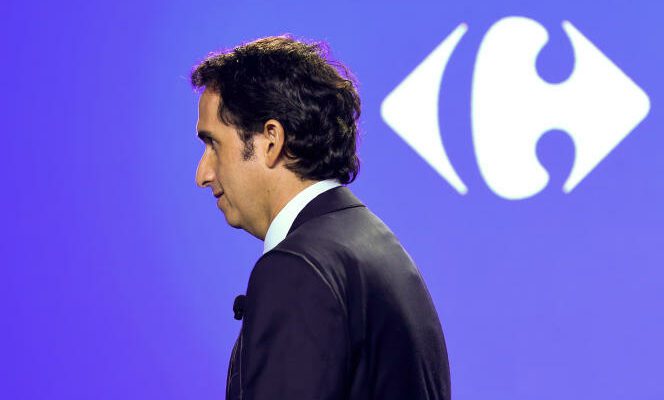EOur wicker, rush, even palm tree, the basket accompanied the life of women and men to accommodate the crops of the vegetable garden or the product of the races. Out of fashion in favor of the trolley or shopping bag, it remains a political symbol. The government intends to impose on large grocers a “anti-inflation basket”. Woven wicker to the rescue of major macroeconomic imbalances. This Monday, March 6, the Minister of the Economy, Bruno Le Maire, announced an agreement with large retailers. Usual maneuver intended to push traders to make a move… and to show that the government is behind it.
Sunday March 5, Alexandre Bompard, CEO of Carrefour, a good student, had already opened his personal basket. This contains shampoos, toothpastes, vegetables, pasta, eggs and even spreads. In total, two hundred products at 2 euros, price guaranteed until June. He had been preceded a few days earlier by Dominique Schelcher, the boss of System U. Intermarché also embarked on the basket war. Magic of competition, all compete with products at cost price to protect the meager savings of their most precarious customers, the main victims of price increases.
Large retailers are an easy, visible and willing target when it comes to lowering prices. It’s his job. For nearly half a century, it has been the government’s objective ally in boosting French consumption. Moreover, five clearly identified players, including three groups of independents, dominate the market. It is therefore easy to point fingers at them, asking them to “make an effort on their margins”.
Arbitration
In doing so, this case hides a paradox and an ambiguity. The paradox is that of an acceleration of inflation while the prices of raw materials, wheat, petroleum, oil, steel, transport have plunged, often beyond 20%. In food, however, the increase was 14.5% in February, for overall inflation of 6.2%.
Where is the difference? Not really in the pocket of distributors, regularly suspected of strangling their suppliers, but in that of large companies, whose results are excellent (L’Oréal, Unilever, Coca, Nestlé, etc.), and in that of farmers, as revealed a recent investigation by the General Inspectorate of Finance. This again poses the eternal question of arbitration between the consumer’s wallet and that of the producer, large or small. France chose the first. You can’t put everything in one basket.
